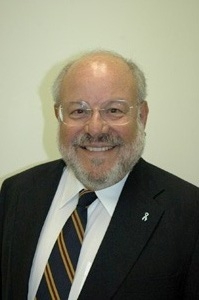Keever was a journalist writing for publications including Newsweek, The New York Herald Tribune and the Christian Science Monitor, and for seven years reported on the Vietnam War from the front lines. At the time she wrote News Zeroshe was a professor of journalism at the University of Hawaii.
In News ZeroKeever detailed the arrangements made by Groves with Sulzberger and James at the Times; how Laurence was hired by the U.S. War Department in April 1945 to work for the Manhattan Project; and how his four months of writing provided most of the material used by the Times in devoting ten of its 38 pages on August 7, 1945 to the development of the atomic bomb and its first use on Hiroshima. Laurence was thus a major player in providing many text-based images, language and knowledge that first fixed and molded the meanings and perceptions of the emerging atomic age. But this major player served as a scribe, Keever continued, writing government propaganda on a historic issue, rather than as a watchdog adhering to those high principles traditionally espoused by the press in general and the Times in particular.
Inspired by Keevers book, HaLevy launched into extensive research on Laurencea quest made more difficult because he destroyed all his files, papers, correspondence, and calendars, leaving behind only his published articles, four nuclear-themed books, and two carefully manipulated oral histories recorded for Columbia University. But she was looking beyond the known facts to the human, emotional underpinnings of the story.These events did not happen by themselves, she said.There were people, agendas, money and psychology behind the decisions made, and I saw Laurence as the lynchpin in conveying the earliest atomic story. I needed to know: who was this man and how could he do that?
A play is different than a book it focuses on human emotions, on drama.
And there is much drama in Atomic Bill and the Payment Due.
Its program notes speak of it as an Oppenheimer-adjacent true story, referring to the film about J. Robert Oppenheimer focusing on his role in the Manhattan Project, which received Academy Awards last year for Best Picture, Best Actor and Best Director, among other honors.
The first time we see Laurence in Atomic Billis a few seconds in, the character described as mid-50s, arrogant, argumentative, dismissive He watches podcaster Jessie Keever (a tip-of-the-theatrical hat to Beverly Keever) based on Libbe as she announces on the show, There will be a big rally in New York across from the United Nations in support of the U.N.s Treaty on the Prohibition of Nuclear Weapon.Ill be speaking there and, leading up to it, on the show, Ill address that timeless question: How do you hide an atomic bomb in plain sight?
You cannot tell that story! exclaims Laurencea spectre in her mind.
Its high time somebody did, says Wilfred Burchettanother spectre. He is an Australian journalist and wasfirst reporter to enter Hiroshima after the atomic bombing, eluding the U.S. ban on westerners accessing what is left of the city. Burchett traveled, unescorted, through the destruction where Hiroshima used to be and sat in the rubble to write his story famously headlined The Atomic Plague. Burchett wrote: There was devastation and desolation and nothing else.He exposed the deadly effects of radiation from the bombing that otherwise were being denied by military authorities. It was published in the London Daily Express and picked up for distribution around the world, creating a firestorm of criticism.
On her program, Jessie continues, Im going to tell you exactly how this first atomic cover-up happened, what it led to, and how a man youve never heard of
Laurence interrupts: No!
Jessie continues: irrevocably changed your life without your knowledge or consent.
You cant stop her, says Burchett.
Jessie: proving that not only is the pen mightier than the sword
I forbid it! Laurence shouts.
Jessie goes on: but that the pen in service to the sword is the deadliest of all.
(Note: You can view every article as one long page if you sign up as an Advocate Member, or higher).





